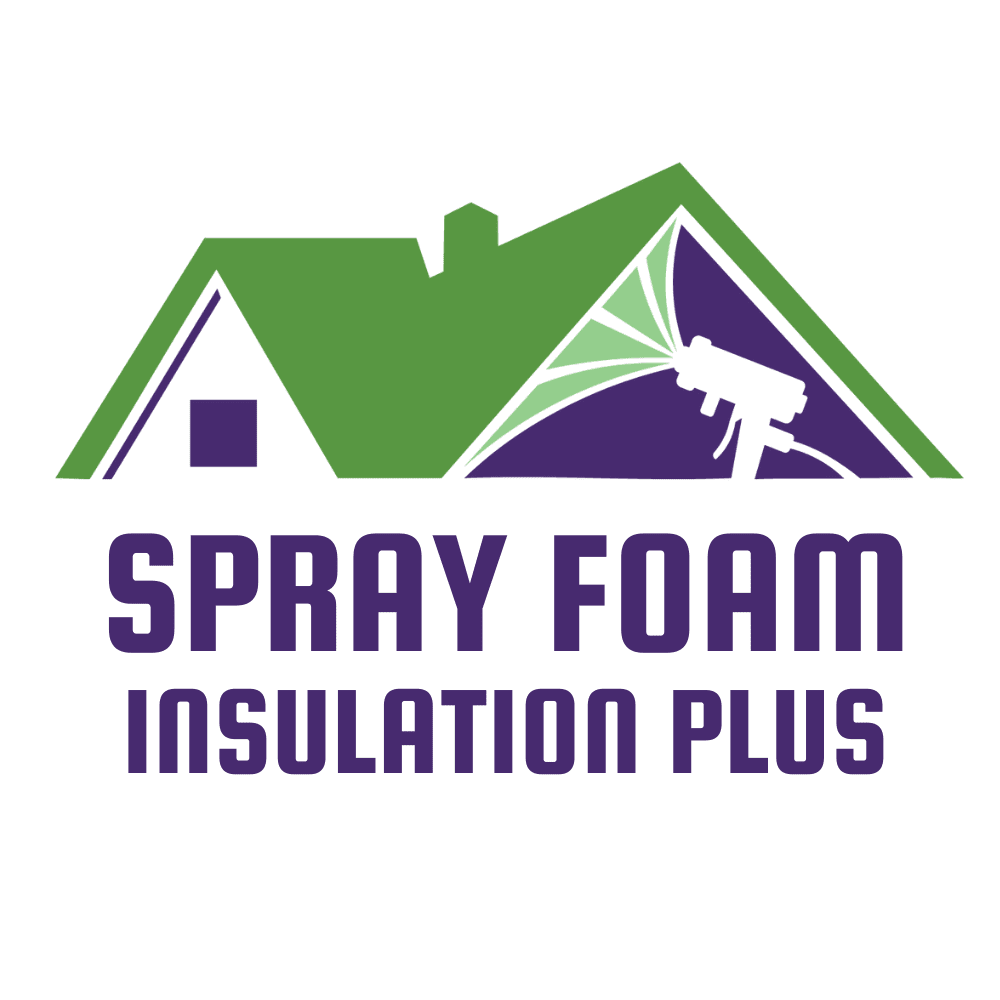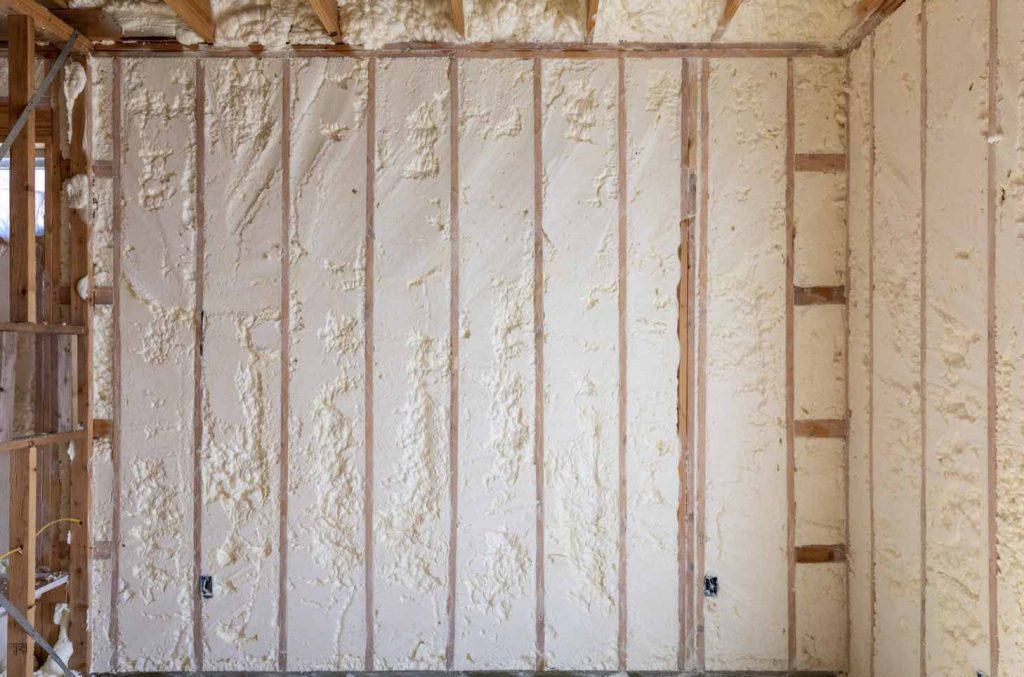
Insulation Plus


Spray Foam Insulation Near Blaine MN
Looking for the best spray foam insulation near me in Blaine, MN? Look no further than Spray Foam Insulation Plus. We understand the importance of a well-insulated home, and our expert team is dedicated to providing top-notch insulation solutions tailored to the unique needs of the Blaine community.
Spray foam insulation offers unparalleled benefits, from energy efficiency to enhanced comfort. It creates a seamless and airtight barrier, preventing heat transfer and reducing energy waste. If you’re concerned about the cost of attic insulation, our team in Blaine, MN, provides transparent and competitive pricing. We’ll work with you to determine the most cost-effective solution for insulating your attic and improving your home’s overall energy efficiency.
As one of the trusted local spray foam insulation companies in Blaine, MN, we take pride in our commitment to quality and customer satisfaction. Our insulation contractors are experienced, knowledgeable, and dedicated to delivering exceptional service. Whether you’re looking to lower your energy bills, increase home comfort, or explore insulation rebates, Spray Foam Insulation Plus is your go-to partner for insulation excellence in Blaine, MN.
Spray Foam Insulation Near Me Cost Blaine MN | Our Insulation Services:

Experienced Blaine Spray Foam Insulation Contractor
We understand the importance of a well-insulated home, and our services are designed to meet the unique needs of the Blaine community. Whether you’re concerned about attic insulation cost, looking for spray foam insulation near me in Blaine, MN, or exploring energy rebates, we’ve got you covered. Our experienced insulation contractors are dedicated to delivering top-notch service and ensuring that your home is properly insulated for maximum energy savings.
At Spray Foam Insulation Plus, we offer a wide range of insulation services, including spray foam insulation, attic insulation, and more. Our expert team in Blaine, MN, is committed to providing cost-effective solutions that prioritize your comfort and energy efficiency. From insulation installation to waterproofing and energy rebates, we are your one-stop shop for all things insulation. Have you been searching for “spray foam insulation near me cost Blaine MN“? Contact us today to discover how our services can benefit your home in Blaine, MN.

Experienced Blaine Spray Foam Insulation Contractor
We understand the importance of a well-insulated home, and our services are designed to meet the unique needs of the Blaine community. Whether you’re concerned about attic insulation cost, looking for spray foam insulation near me in Blaine, MN, or exploring energy rebates, we’ve got you covered. Our experienced insulation contractors are dedicated to delivering top-notch service and ensuring that your home is properly insulated for maximum energy savings.
At Spray Foam Insulation Plus, we offer a wide range of insulation services, including spray foam insulation, attic insulation, and more. Our expert team in Blaine, MN, is committed to providing cost-effective solutions that prioritize your comfort and energy efficiency. From insulation installation to waterproofing and energy rebates, we are your one-stop shop for all things insulation. Have you been searching for “spray foam insulation near me cost Blaine MN“? Contact us today to discover how our services can benefit your home in Blaine, MN.
Benefits of Our Insulation Services:
Spray Foam Insulation Near Me Cost Blaine MN
At Spray Foam Insulation Plus, we take pride in being the go-to insulation experts in Blaine MN. Wondering about “spray foam insulation near me cost Blaine MN or concerned about attic insulation cost? Look no further. Our comprehensive insulation services are tailored to meet your unique needs, ensuring a more comfortable and energy-efficient home.
Our commitment to excellence sets us apart from other local spray foam insulation companies. We prioritize your satisfaction and energy savings, providing top-notch insulation solutions at competitive prices. From spray foam insulation in Plymouth to insulation contractor services in Minneapolis, our expertise covers a broad spectrum. We understand that every home is unique, and our team is dedicated to finding the most cost-effective and efficient insulation solutions for your specific requirements.
With Spray Foam Insulation Plus, you’re not just getting insulation; you’re investing in the long-term comfort and energy efficiency of your home. Our experienced professionals use the latest techniques and materials, ensuring that your insulation project is completed with the utmost precision. Whether you’re interested in attic insulation, waterproofing, or exploring insulation rebates, we’ve got you covered. Contact us today to experience the unmatched benefits of our insulation services in Blaine.

Contact Spray Foam Insulation Plus
We are focused on providing our clients with the highest
level of quality and excellent customer support.
Schedule an Estimate

Contact Spray Foam Insulation Plus
We are focused on providing our clients with the highest
level of quality and excellent customer support.
Schedule an Estimate

Frequently Asked Questions - Spray Foam Insulation Blaine
Spray Foam Insulation Near Me Cost Blaine MN
While spray foam insulation may have a higher upfront cost, its long-term benefits, such as energy savings and increased home value, often outweigh the initial investment. We provide a detailed cost comparison to help you make an informed decision.
Absolutely! Our services cover a range of insulation needs, including attic insulation. We can assess your attic’s unique requirements and provide cost-effective solutions for optimal energy efficiency.
While DIY insulation is an option, we recommend professional installation to ensure effectiveness and safety. Our experienced team in Blaine, MN, guarantees a seamless and efficient spray foam insulation application tailored to your home’s needs.









